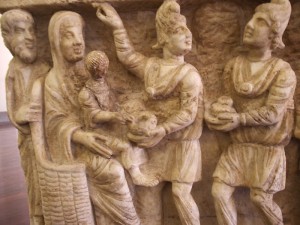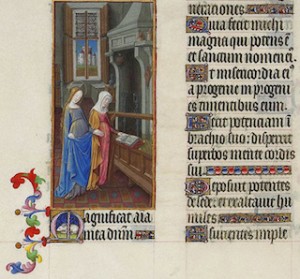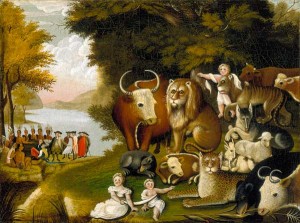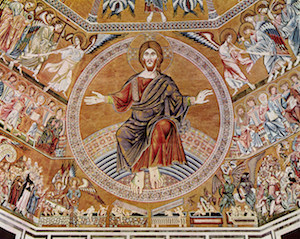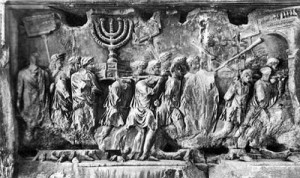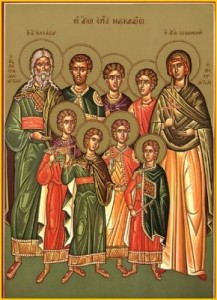Thoughts on Today’s Lessons for Sunday, Jan. 12, 2014
The book of Isaiah actually incorporates the work of three separate prophets, modern Bible scholars tell us. The First Isaiah warned of the loss of Jerusalem and the Temple and exile in Babylon if the people didn’t follow their covenant and walk in God’s ways. In today’s reading we come to Second Isaiah. The dire predictions of First Isaiah have come to pass, and the prophet reminds the exiled community of God’s call for justice and righteousness. There is still hope – God is always with us and will send God’s servant to lead us – but God’s covenant must be fulfilled with all the nations.
Psalm: Psalm 29
Whether we huddle in the basement, listening to the radio for news, or venture out onto the porch to watch in fearful awe, we all surely know how it feels to live through a powerful thunderstorm. Lightning flames like fire. Thunder shakes everything. Giant oak trees seem to whirl, and large limbs come crashing down. We may sense God’s power in the frightening storm, but we also feel the comfort that comes with knowing God’s protection and peace.
Second Reading: Acts 10:34-43
Peter, alive with the Holy Spirit, tells the Roman centurion Cornelius, an early Gentile Christian, that God’s message through Jesus is for everyone and every nation. God’s generous gift of grace to all, without partiality, surely reflects God’s righteousness to all the nations expressed in today’s Isaiah reading. As Peter so firmly states, “All the prophets testify about him that everyone who believes in him receives forgiveness of sins through his name.”
Gospel: Matthew 3:13-17
All four Gospels tell of Jesus coming to John the Baptist, who was baptizing crowds in the Jordan River for “repentance and the forgiveness of sins.” But then we have to wonder: Why would Jesus need to repent or be baptized? The Gospels show John pointing out that Jesus should be baptizing him, not the other way around. But Jesus insists, and John agrees. And then we see a vision of the Trinity on Jordan’s bank as Jesus, the Son, comes up from the water to see the Holy Spirit descending like a dove, while the Creator God’s booming voice declares Jesus as the beloved son.

